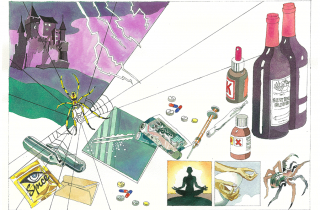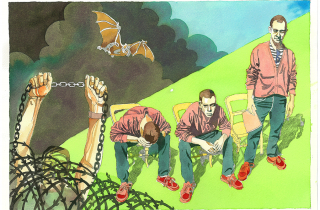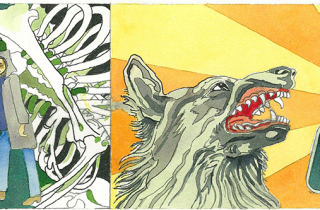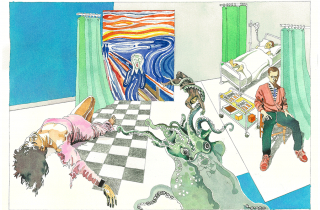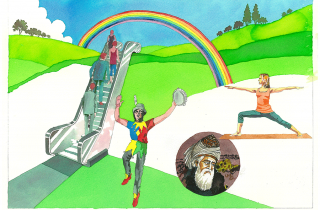Q&A with Ian Young of Sober Services
Q: In cases where an older addict has been to rehab and lapsed afterwards – returning to his or her previous habits of emotional blackmail towards their parents – what action would you advise parents take to be able to deal with this?
A: This is a difficult question to answer as every family dynamic is different. However, as a general rule, whenever the addict is manipulating or antagonising their family, it’s a clear sign that they’re not in stable or healthy recovery and a return to treatment would be recommended for the addict. For the family, there are plenty of support groups that they must be encouraged to attend and seek support from.
What I would be coaching them through would be around standing up to the addict and their manipulations etc. It’s important that the addict experiences boundaries and is shown what’s not going to be tolerated any longer. Unfortunately, if they’re not confronted with expected standards of behaviour, then they’ll always push the boundaries to see just how much they can get away with.
Furthermore, all too often the addict will be bending the other family members around their will by installing fear into everyone. Maybe this comes from shouting / screaming, or maybe from manipulations, threats, demands, excuses and other ways that the addict will find to leverage those around them to achieve their own best result, regardless of the consequences to the others around them. This is completely selfish, and so long as the family continues to give in to the addict’s control and manipulation, then there’s no real chance of them moving into recovery and the family will experience a deterioration of quality of their own lives alongside the addict’s poor behaviours.
So in these situations, maybe more so than others, it’s imperative that the family stand up to the bully living amongst them, or else the situation will deteriorate even further.
Q: When an Intervention has been carried out in the past, and the addict has gone to re-hab and relapsed, does it make sense to repeat the process again?
A: This is a great question, which really does depend upon the individual and their specific case. For instance, I relapsed after graduating from primary care, whilst in secondary care, and my rehab worked with me where I was at. I haven’t used since. In many cases the relapse could be considered a slip or a blip along the road, and in these cases I don’t think primary re-hab is needed again.
However, if someone has returned to their community and they’re suddenly back to using again, then yes, perhaps treatment is the best hope. That said, in many cases by attending 12 step meetings every day, then sooner or later they will accept their powerlessness over their addiction and will return back to abstinence. But really, this question is too open to answer specifically, as every case is very different.
The one thing that needs to remain concrete is that the bottom line boundaries from the family need to be implemented immediately, so as to show the addict that you were serious in the Tough Love process of the intervention.
—————————————————-
Ian Young Bio (continued from Part 1 of ‘Intervention – A Professional View)
 Ian is an outstanding and charismatic speaker, very comfortable presenting and solving problems from the stage. It is his natural skill of engaging both large and small audiences that has taught Ian to exploit his organic talent of being a positive influence over individuals, for whom any encounter is both uplifting and thought- shifting. Ian’s style is dynamic, inspiring and enthusiastic. He’s recently launched his own training company Sober-Academy to support others wishing to work in the professional addiction treatment industry.
Ian is an outstanding and charismatic speaker, very comfortable presenting and solving problems from the stage. It is his natural skill of engaging both large and small audiences that has taught Ian to exploit his organic talent of being a positive influence over individuals, for whom any encounter is both uplifting and thought- shifting. Ian’s style is dynamic, inspiring and enthusiastic. He’s recently launched his own training company Sober-Academy to support others wishing to work in the professional addiction treatment industry.
Ian is a published author of his dynamic autobiography “It’s Not About Me! – Confessions of a Recovered Outlaw Addict, from Living Hell to Living Big”. This is an easy to read page turner, telling Ian’s full story going into the depths of his own addictions whilst maintaining his world traveller adventurer status as a means to DJ globally, traffic and smuggle drugs and attempt to ensure the party never ended. It offers a candid description of the difficulties and challenges he faced trying to clean himself up and most importantly the practical and spiritual lessons he’s learned through his many years helping others remain drug and alcohol free, and turning his attentions to the welfare of others (hence the title).
His charismatic and intelligent approach to business and projects alike brings a truly exceptional edge to all those fortunate enough to work alongside him and experience his energy, humour and passion. With his background and his understanding of the psychology of the human condition, Ian makes a unique addition to the human gene pool.
Ian is a homeowner and living with his wife, 2 dogs, 1 cat and 3 horses in a quiet part of Northern Hertfordshire. Beware, his energy is infectious, his dedication is profound and his passion to serve his clients shines through.

